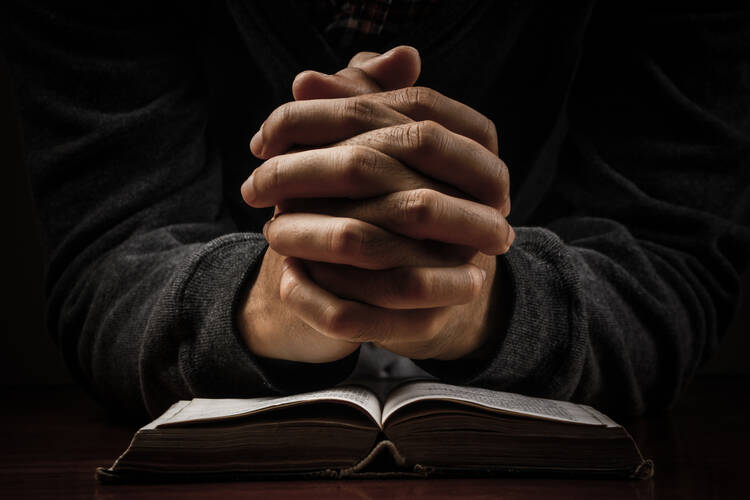A Reflection for Tuesday of the First Week of Lent
“This is how you are to pray.”
You can find today’s readings here.
A few weeks ago, while attending a local Spanish-language Mass, I found myself uncharacteristically irritated.
Don’t get me wrong, there wasn’t anything wrong with the Mass at all. In fact, I often find solace in the Spanish hymns and songs of my childhood, with Spanish being the language in which I live my prayer and spiritual life.
And yet there I was, fidgeting in a pew, upset at the way a Spanish hymn was being sung.
This was of course not the first time I attended a Mass that was different from those at my home parish. Going from Mass in Spanish my entire life (with a sprinkling of Youth English Masses in high school to fulfill the requirement for my Confirmation) to English Mass in college is still the biggest adjustment to date. And at my home parish, the different choirs at the different Spanish Masses would also sing responsorial psalms and songs in different styles, too. So I was surprised to find myself genuinely upset at this one different iteration. To be honest, looking back now, I couldn’t even tell you what that fateful song was.
But that Sunday afternoon, in not-so-silent retaliation, I began to sing the song using the intonation and speed I grew up singing. I tried my best to stay in the choir’s lyrical vicinity, but found myself frequently going high when they went low, extending a vowel when they cut short.
Needless to say, it was to no avail––I was quickly tripped up by the amplified choir and the sea of parishioners joining in what I believed was the “incorrect” rhythm and tone. Reading today’s Gospel felt like a light slap on the wrist to this irritable version of myself.
In painfully clear language, Jesus tells us the following in this reading from Matthew:
“In praying, do not babble like the pagans, who think that they will be heard because of their many words…This is how you are to pray.”
Jesus then recites what we know as the “Our Father,” a prayer that directs our attention to our heavenly father, residing in heaven, and prays that his will be done on earth. We then ask that he grace us with his daily bread, that he forgive our sins and that he direct us away from temptation and evil. We also affirm that we forgive those who have “trespassed against us.”
This prayer, along with the rest of today’s Gospel, grounds us in the basics of our faith. It reminds us that God himself has given us the guidelines for prayer, and through his omnipresence and love, “knows what you need before you ask him.”
We, as humans, are imperfect. Sometimes that imperfection manifests as our unwillingness to extend a helping hand when others are in need, or in letting our ego win over compassion and understanding. And other times still, it can be displayed in our urge to cling onto tradition (such as a particular version of a beloved song) above acceptance and spiritual growth (in singing along and reflecting with a new arrangement).
The truth is, in retaliating against what I’m sure was a beautiful rendition, I was distracted by my own emotions and completely lost track of what the lyrics were trying to convey. I lost that battle as soon as I let my own pride take over.
This Lent, I hope to ground myself in what really matters: the truth and value in God’s words and teachings. I hope you’ll join me in discovering the joy in expressing and embodying our beautiful faith in new ways.







